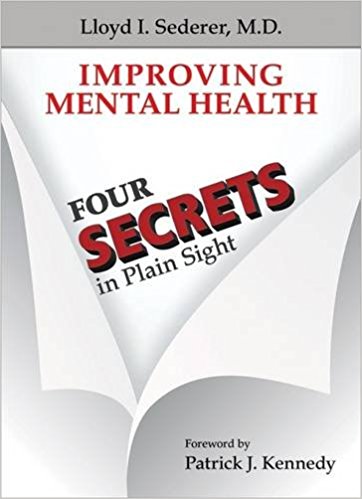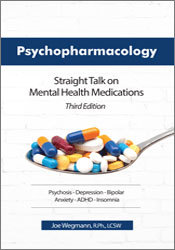Dr. Lloyd Sederer signing Improving Mental Health: Four Secrets in Plain Sight
Click here for more information or to purchase
In Improving Mental Health: Four Secrets in Plain Sight, Dr. Lloyd Sederer draws upon four decades of diverse clinical practice, mental health research and public health experience to create a memorable volume that is as elegant as it is instructive. The book aims to help clinicians improve the lives of their patients–and patients to improve their own lives–by identifying these secrets and taking action in ways that can work immediately, closing the science-to-practice gap. In addition to mental health and primary care clinicians, patients and their families will find the books many stories, clinical examples and cultural references fascinating and illuminating. The books four foundational truths, all hiding in plain sight and all eminently actionable, are – Behavior serves a purpose. The search for meaning and the identification and communication value of a behavior are too often overlooked aspects of mental health care and a lost opportunity with and for patients and their families.- The power of attachment. The force of attachment as a human need and drive must be harnessed if we are to change painful and problem behaviors. Relationships are the key to remedying human suffering — both individual and collective. – As a rule, less is more. Mental health treatments, both medical and psychosocial, have often been aggressive, from high doses of drugs to intensive sessions and psychic confrontation in individual and group psychotherapy. Unfortunately, these high risk efforts infrequently provide help and often have unwanted and problematic effects. Primum non nocere — first, do no harm — is the first law of medicine.- Chronic stress is the enemy. From adverse childhood experiences to posttraumatic stress, chronic stress can be an underlying factor in the development of many mental disorders. However, chronic stress can be understood and contained, thereby reducing its damage.
Dr. Sederer synthesizes the knowledge gained through his considerable experience as a psychiatrist with insights gleaned from history, research and literature to address the four truths in a systematic, yet lively, manner. The result is a book of rare grace. Improving Mental Health: Four Secrets in Plain Sight will be a touchstone for the clinician and general reader alike.
Lloyd Sederer has written this book to help laypeople and practitioners see whats right before their eyes, but often unnoticed. He explores four secrets that behaviors have meaning, that attachment is central to health (and recovery), that doing more often means doing more harm, and that chronic stress may be the most debilitating condition of life…This is well worth reading, digesting, and using as a foundation for interactions between clinicians and the people they aim to serve.–Paul Gionfriddo, President and CEO, Mental Health America
There are secrets hiding in plain sight, so writes Dr. Lloyd Sederer in his new (10th!) book, which can make a real difference in the lives of people with mental and addictive disorders and their families. He is not only right; he reveals these secrets using stories, anecdotes, science, and history. This is a must and wonderful read for clinicians and for those affected by these all so common conditions. –Linda Rosenberg, MSW, President and CEO, National Council for Behavioral Health




